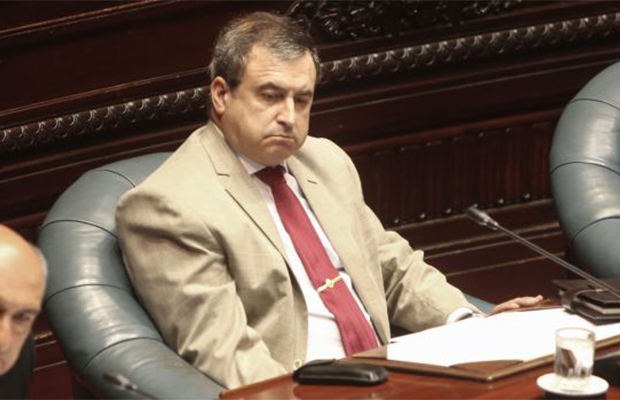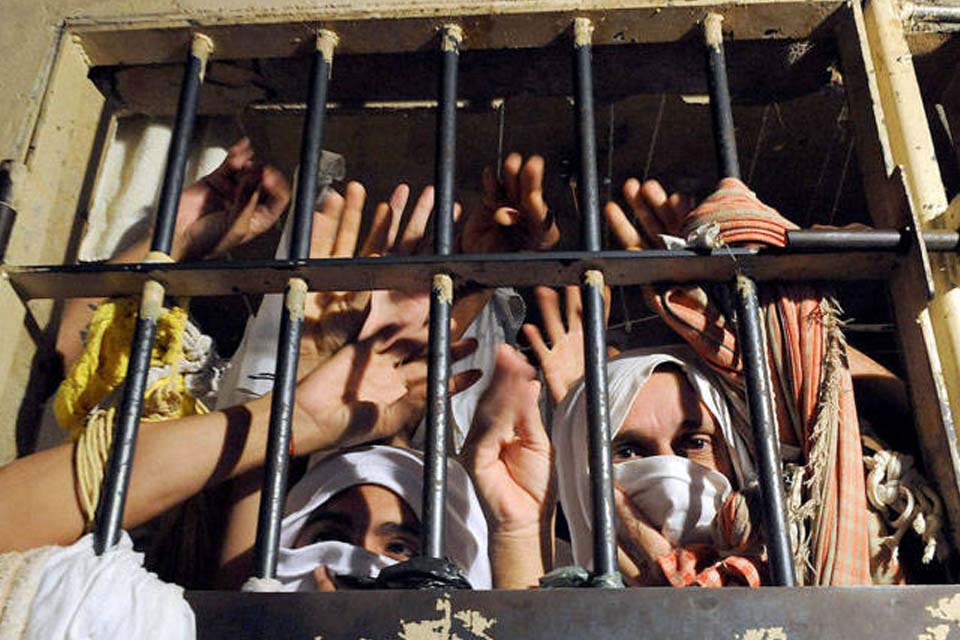On Thursday, the Committee on Labor Affairs and Social Security of the Senate will meet and the president of the parliamentary group, lobbyist Raúl Lozano, will propose the changes that his party wants to introduce in the draft legal status of unions: that union leaders be elected by secret ballot and that the companies are not withholding agents for the union dues.
Sources from the parliamentary group pointed out that although the commission approved the project with the votes of the coalition, before going to the plenary session that returned it, Cabildo Abierto did not report the changes it wants to introduce.
However, these are variants that the lobbying deputies tried to introduce as additives in the House of Representatives, when the initiative signed by President Luis Lacalle Pou and Minister Pablo Mieres was discussed.
In Deputies, the additives did not have the support of the rest of the caucus of the multicolored coalition, before which informal conversations are being carried out among the legislators of the coalition to see if the changes are introduced.
The following is the synthetic version of the interview in Diario La R with Senator Lozano about the position of the Cabildo Abierto regarding changes in the draft legal status of the unions.
-For what reason did Cabildo Abierto ask not to deal last week in the Senate with the legal status project for trade unions and business chambers?
-We think it deserves a better analysis, debate and reflection. Although we understand that it is a very good project, we believe that it can be improved in some aspects.
The project contemplates what is established in article 57 of the Constitution of the Republic that makes it easier for trade union organizations to formalize their status and also contemplates the Convention of the International Labor Organization (ILO), No. 87. These aspects are settled as well as how the project is drafted.
We also understand, for the purpose of democratizing the election of the authorities of the base unions, that they be elected by secret ballot. In the case of the PIT-CNT (3rd grade) union, it is good to know what each union votes for.
-Now, the secret vote, is it only to define delegates and leaders or also for the decision-making of grassroots unions, like a strike?
-It is regarding the election of the authorities.
-In other words, the formality to be followed for decision-making would not be foreseen-
-No, it would not be planned, we have to talk about it.
-On the other hand, Cabildo Abierto also has a proposal regarding the collection of the union’s social quota…
-Exactly; although the bill contemplates in its article 7 that (before) those (unions) that do not comply with what article 5 says, which is the registration or registration with the Ministry of Labor and Social Security with a series of requirements that (the) facilitate, the companies are not obliged to deduct the fee
We understand that for greater freedom of the worker himself, just as we understood when voting the Law of Urgent Consideration that the worker who wants to strike has the right and the one who wants to work has the right to work, as well as the employer to enter his property ; It gives the worker more freedom to go and pay his union dues and not have it deducted directly from his salary.
-In other words, in no case, whether or not the union has legal status, can the company be a withholding agent for the quota…
-That is what we want to discuss: that the fee is not deducted from the worker-
There are informal conversations
-What other aspects do the lobbyists want to review?
-Those are our doubts. We can also discuss article 2, which establishes that the processing of legal status is voluntary, or propose that it be mandatory for all.
-Now, these issues that Cabildo Abierto raises in the Senate, were presented by the national representatives of the party last year when the session of Deputies was held that ended with the “half sanction” of the text. They were not accompanied by the other members of the government coalition, nor by the opposition legislators. So, were there discussions with the other senators in the coalition to agree on the changes?
-Informal conversations there. There were no formal ones, within the coalition; yes with members of the commission.
– Can the agreement be seen?
-There is still something to talk about.
Media law
-It has been seen in Deputies, differences between the lobbying deputies and those of the rest of the coalition in terms of Accountability, an issue that will soon reach the Senate. The Media Law can be cited as an example, which will be broken down, will not be voted on in the Chamber, but senators can reinstate the debate through an additive. The President of the Republic even suggested that it would be good to know how many legislators there are in favor of the Media Law. What position do the lobbying senators have?
-We are open to discussion. We maintain very flexible positions, trying to find agreements, debate and finally see what we do.
-At the level of the commission of Deputies, the project of a lobbying legislator on the Media Law is being presented.
-It is Sebastián Cal’s project, but it is not the same as the articles sent by the Executive Power within the Rendering of Accounts.
-Minister Omar Paganini included in the Rendering of Accounts some articles on the Media Law, in which the repeal of the current rule is proposed to take over the previous regime…
-In principle, we have to study that.







